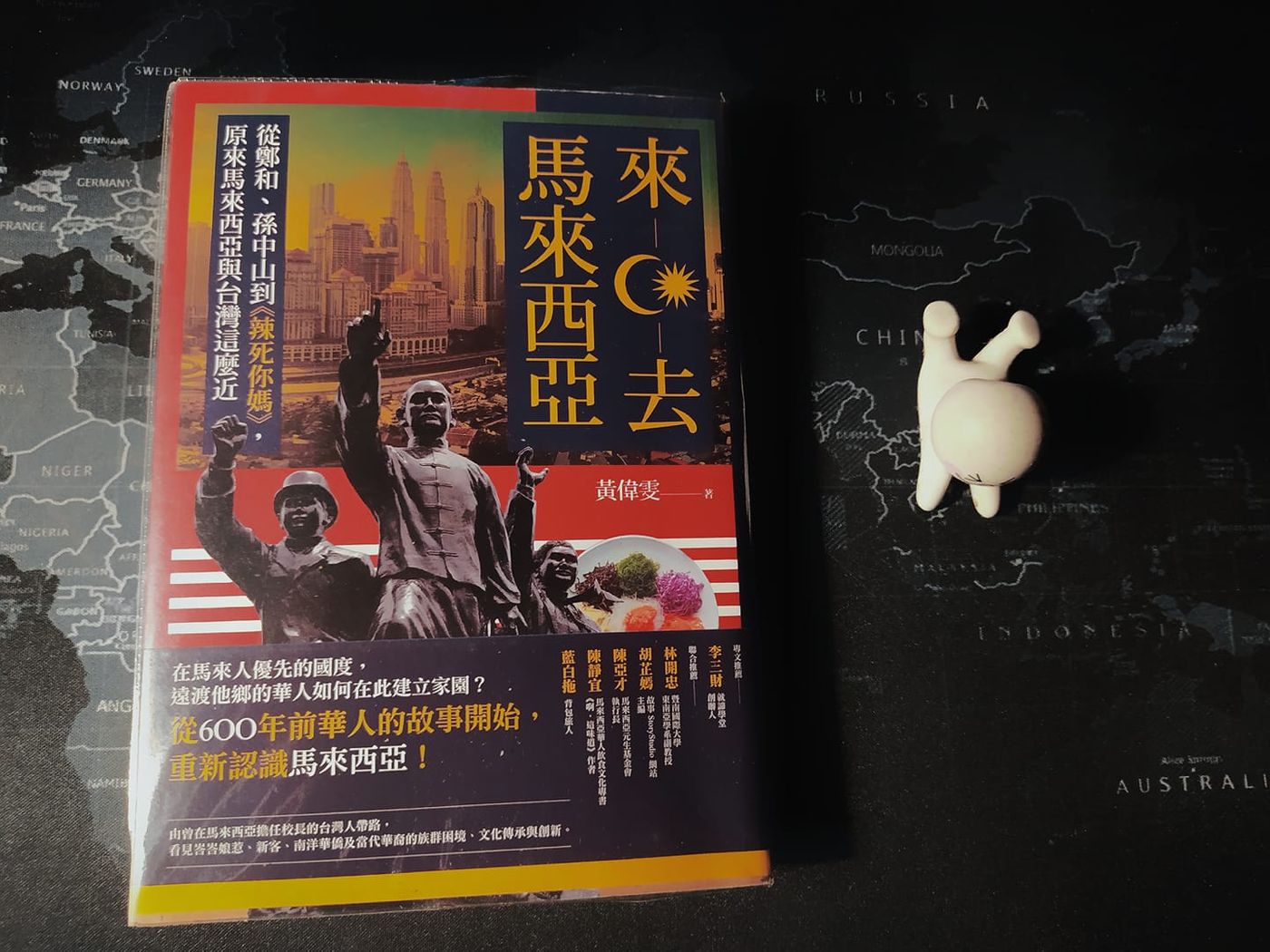
大馬.砂拉越.古晉 | 天蠍男 | 媒體人 | 愛閱讀 | 寫生活 | 寫城市 | 寫不成材的小說 | 每星期二、四、六更新文。
After Reading | Coming and Going to Malaysia

As a Malaysian, I don't know much about the country. The historical deeds I learned from the textbooks were returned to the teacher after graduation, and many historical events were not taught in the textbooks. The history textbooks that impressed me the most were the stories about the Malacca Dynasty and the story of a hero Hang Tuah. So it can only be learned from extracurricular books.
When I saw the book "Come to Malaysia" in the bookstore, I found that the author Huang Weiwen's name was very familiar. After checking it, I found that she had been in a Chinese independent high school in Serian County, 60 kilometers away from Kuching, Sarawak." Xilian People's Middle School" served as the principal. So I immediately started to buy "Come and Go Malaysia".
Huang Weiwen is from Taiwan. A girl from Taiwan actually came to our rural school to be the principal. There are occasional reports in the news, so I still have some impressions of her. It is worth mentioning that the current principal of Xilian People's Middle School is also from Taiwan. Female Principal Huang Ping.
Many of the historical events described in the book Coming and Going Malaysia are unknown to me. And if you don’t specialize in Malaysian history or are interested, I think many Malaysians, like me, are ignorant about the history of many of their own countries, and some histories can never be read in textbooks.
Huang Weiwen started from Zheng He's voyages to the South China Sea. In Chinese historical records, the earliest records about the relationship with Malaysia (there was no Malaysia at that time, it should be the Malay Peninsula, which is now West Malaysia) can be traced back to the Han Dynasty. Malaysia is a national term that only appeared after World War II.
Among Chinese historical figures, the Ming Dynasty navigator Zheng He should be regarded as the most famous one I know. Because he is very famous in Kuching, he can be "seen" everywhere. In Kuching, there is a park "Malaysia-China Friendship Park" built to commemorate the 30th anniversary of the friendship and diplomatic relations between Malaysia and China. There is a super large statue of Zheng He in it.
There is also a "Zheng He Commander's Road" in Kuching. In addition, there is a Western Temple in Kuching Shanduwang that also enshrines Lord Sanbao (Zheng He). It is said that believers believe that Zheng He's fleet, which sailed to the West, once came to the vicinity.
In the book, the author introduces in detail the history of Malaysia when it was colonized by many Western countries. Malaysia was colonized by Britain, the Netherlands and Portugal. There are also many historical monuments and buildings left. Among them, it is the most influenced by the United Kingdom. The current Malaysian government system follows the British Westminster system, and also leaves many British-style buildings, including a century-old post office in Kuching and the old courthouse, which are British-style buildings. , are now historic buildings and are still in use.
Brunei, which many people know now, is a small country rich in oil, with a small land, but before the British came, Sarawak and Sabah in Borneo actually belonged to the Sultan of Brunei and were a big country. It was then ceded to Britain for various reasons. Sarawak was originally given to the British James Bullock, and then entered the Bullock dynasty of the white Raja era.
During the British rule, a group of very special people appeared, called "Dictionary Lovers". They were officials who were specially sent to Sarawak by the British to take care of their daily life, including sleeping with them, solving the physiological needs of men, and the most important work. It is to teach British officials to quickly learn the local language.
The book also describes the deeds of the Chinese who came to reclaim the land in the late Qing Dynasty, the Japanese occupation period, the establishment of an independent state, the integration of East Malaysia and West Malaysia, etc. It also mentions the belief, intermarriage, education, culture and food culture of the Chinese Communist Party and Malaysian Chinese. If you want to know the history of Malaysia and how the Chinese lived in this land.
From "Coming and Going to Malaysia", I also learned that the "May 13" incident that happened in 1969 was an incident about ethnic emotional conflict, which is simply "exclusion of the Chinese". Although some people, politicians, or occasionally some reports have seen the words of May 13, I do not understand the complete incident. After all, it is a very sensitive matter in Malaysia.
Coming and Going Malaysia is an easy and digestible book that you can read.
Like my work?
Don't forget to support or like, so I know you are with me..
Comment…